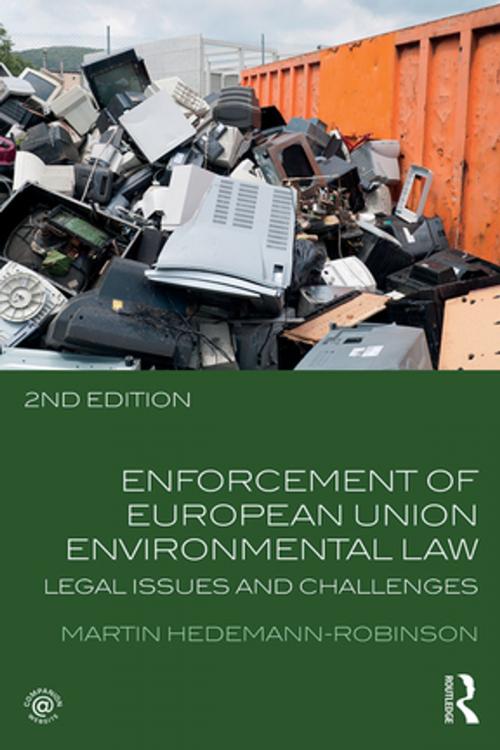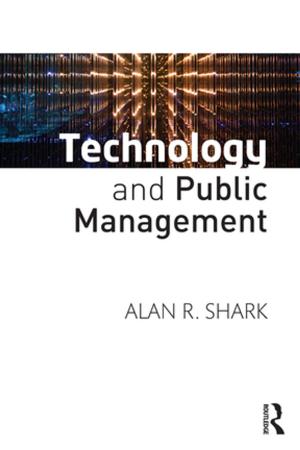Enforcement of European Union Environmental Law
Legal Issues and Challenges
Nonfiction, Reference & Language, Law, Environmental, International, Science & Nature, Nature, Environment, Environmental Conservation & Protection| Author: | Martin Hedemann-Robinson | ISBN: | 9781135115845 |
| Publisher: | Taylor and Francis | Publication: | May 15, 2015 |
| Imprint: | Routledge | Language: | English |
| Author: | Martin Hedemann-Robinson |
| ISBN: | 9781135115845 |
| Publisher: | Taylor and Francis |
| Publication: | May 15, 2015 |
| Imprint: | Routledge |
| Language: | English |
Offering a detailed account of the various legal arrangements at European Union level, this book is an ideal reference tool for practitioners and legal scholars. As well as examining the principal sources of EU environmental law enforcement, it also contributes to the legal and political debates that surround the subject.
Spanning three parts, the author examines the practical impact of the legal arrangements at Union level that are used to uphold EU environmental norms. Offering a comprehensive account of the current state of EU environmental law enforcement and the developments affecting it, Martin Hedemann-Robinson explores the role of the European Commission, the possibilities for private law enforcement, and the responsibilities of member state national authorities.
Key legal developments that have occurred since the first edition have been incorporated, including new statutory developments and case law. Particular attention is paid to the impact of the 2007 Lisbon Treaty on foundational EU treaty provisions enabling the European Commission to take legal action against EU member states infringing Union environmental law, the establishment of a new legal architecture at Union level on the topic of environmental criminal policy, as well as increased EU legislative intervention in the area of environmental inspections. The impact of the 1998 Århus Convention on EU environmental law enforcement is also addressed in detail, including the influence of recommendations of the Århus Convention’s Compliance Committee.
Offering a detailed account of the various legal arrangements at European Union level, this book is an ideal reference tool for practitioners and legal scholars. As well as examining the principal sources of EU environmental law enforcement, it also contributes to the legal and political debates that surround the subject.
Spanning three parts, the author examines the practical impact of the legal arrangements at Union level that are used to uphold EU environmental norms. Offering a comprehensive account of the current state of EU environmental law enforcement and the developments affecting it, Martin Hedemann-Robinson explores the role of the European Commission, the possibilities for private law enforcement, and the responsibilities of member state national authorities.
Key legal developments that have occurred since the first edition have been incorporated, including new statutory developments and case law. Particular attention is paid to the impact of the 2007 Lisbon Treaty on foundational EU treaty provisions enabling the European Commission to take legal action against EU member states infringing Union environmental law, the establishment of a new legal architecture at Union level on the topic of environmental criminal policy, as well as increased EU legislative intervention in the area of environmental inspections. The impact of the 1998 Århus Convention on EU environmental law enforcement is also addressed in detail, including the influence of recommendations of the Århus Convention’s Compliance Committee.















